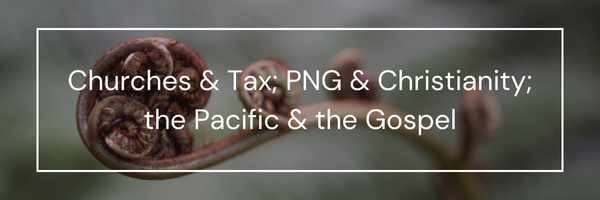
by Dr Stuart Lange | 16 May , 2025 | About Christianity, Articles, The Church
The Risen Lord remains forever the living Head of the universal Church, his Body.
Catholic and non-Catholic Christians hold much in common, but also differ on many significant doctrines and practices – including the authority of the Pope.
Nevertheless, as the leader of the largest Christian denomination in the world, any Pope is an important public face and voice of Christianity in the wider world.
Popes come and go, and all of them have their own styles and emphases.
Pope Benedict was a scholar and an advocate for orthodoxy.
Pope Francis was a man of considerable personal warmth, generosity, and humility, with a heart for the poor and oppressed. He also expressed a desire for a more “inclusive” approach. All this commended him to many, both within and beyond the Christian community. But his ambiguity in some matters worried many conservatives.
As for Pope Leo, it is too early to be sure what sort of leadership he may now give to the worldwide Catholic Church. In that diverse and complicated space, he will need much wisdom and prayer.
The reality is, in whatever church we are in, we all need both church leaders and church members who deeply love God, who are passionate for the Gospel, who are faithful to God’s word, who are people of prayer, who are led by the Spirit, who are growing more like Christ, and who genuinely love others.

by Dr Malcolm Falloon | 16 May , 2025 | About Christianity, Articles, The Church
Something remarkable appears to be happening in the Western church. Church attendance is up. News of this has come anecdotally at first, and you might have noticed it in your congregation, that young men (in particular) seem to have more openness towards the Christian faith.
There is also now some hard data to support these intuitions. The Bible Society in the UK commissioned the polling agency, YouGov, to map the changes in church attendance between 2018 and 2024. They surveyed 19,000 people in 2018 and another 13,000 in 2024 and found that over this period monthly attendance had increased fifty percent: from 8% of the population to 12%.
What is even more remarkable is that the increases are not even over the whole demographic. They found that church attendance among young men aged 18–24 in 2018 was less than 4%, but in 2024 this had increased to 21%. This represents a six-fold increase. As one commentator stated: men are waking up!
There is also a smaller, yet still significant, increase among women of a similar age. It means that in the UK, the average 21-year-old is three times more likely to attend church than a 51-year-old. Among this 18–24 age group, 35% report a belief in God(s) or some higher power, while 40% report that they pray at least monthly.
Is it the start of a revival? It is probably too early to say, but certainly, the spiritual tide seems to be moving. Is the Secular Narrative, which has long been contradicted by the ongoing growth of churches in the Global South, now also beginning to lose its grip on the Western mind-set?
To listen and read further:

by Dr Stuart Lange | 17 Apr , 2025 | About Christianity, Articles, Christianity in New Zealand, The Church
JESUS
- Jesus is true. The life, death and resurrection of Jesus of Nazareth are very well documented by multiple writers in the New Testament, some of whom knew Jesus well. Others were among those who later died for their faith in him. (Jesus was also referred to, though far less fully in various non-Christian sources).
- In his life on earth, Jesus was in so many ways an utterly unique and deeply impressive person, including his closeness to God as his Father, his character, his complete integrity, his goodness, his compassion, his extraordinary spiritual perception into the human heart, his ethical teaching, and his phenomenal miraculous works – and for over two thousand years, Jesus has continued to inspire and transform people of every place and culture.
- The New Testament gives witness to Jesus as the Messiah, God-with-us, the only Son of the one true God, the image of the invisible God, the Word made flesh, Risen Lord, Saviour of the world.
The CROSS of Jesus…
- The death of Jesus is arguably the most famous and inspiring death in all history.
- Jesus was totally innocent, and his brutal physical suffering and spiritual agony were completely undeserved.
- After intense wrestling in prayer, Jesus submitted himself to the Cross.
- Jesus’ death makes possible our reconciliation with God. Jesus died as a spotless atoning sacrifice, for all the sin and evil of a lost and wayward humanity. The righteous died for the unrighteous (1 Peter 3:18). Jesus took the penalty of our sin, and in exchange we gained His righteousness (2 Cor. 5:21). We receive God’s atonement, forgiveness, and grace through faith in Jesus (Romans 3:25).
- Jesus’ death was not the end, but a prelude to what was about to happen.
The RESURRECTION of Jesus…
- Jesus’ resurrection changes so much!
- Jesus’ lifeless body had been wrapped in burial clothes and laid in a sealed tomb, with armed guards outside.
- On the third day, at dawn, Jesus was gloriously raised from the dead by the infinite power of God, who made this whole universe.
- The empty tomb! A group of women found the tombstone rolled back, and no guards present. Peter and John came and found the tomb empty, but when they saw how the grave clothes were lying, they “saw and believed” (John 20:8). The empty tomb was an enduring silent witness to the reality of the Resurrection.
- Multiple encounters with the Risen Lord! Mary was the first person to meet the Risen Lord. Over the next six weeks, there were appearances of the Risen Jesus to many, many people: to individuals, to groups of disciples, and to at least one large crowd. People walked, talked and ate with the Risen Lord, touched his wounds, and received his teaching. See, for example, John 20-21, Luke 24, Acts 1:3, Acts 15:1-20.
- The Resurrection of Jesus was God’s powerful declaration that Jesus is indeed the one and only divine Son of God (Romans 1:4), and Saviour of the world (Acts 4:10-12). In the Resurrection, Jesus was completely vindicated.
- After six weeks, the disciples saw Jesus ascend to his glory at the right hand of God the Father, from where he shall one day return in power and glory, to judge the living and the dead, abolish evil, suffering, and death, and make all things new.
- The Resurrection of Jesus is the only reason why Christianity and the church ever began, and the only reason how – despite enormous odds and opposition – faith in Jesus has spread to the very ends of the earth, through the power of the Holy Spirit which was first poured out on the day of Pentecost.
- The Resurrection of Jesus is the guarantee that those united with him by faith shall themselves enter eternity with God and the life of the Resurrection (John 3:16, 11:25, 20:31).

by Dr Stuart Lange | 4 Apr , 2025 | About Christianity, Articles
Last week, a very positive and constructive event took place. About 35 Gospel-minded Christian leaders from a dozen Pacific nations met together in Papua New Guinea. They came for the inaugural General Assembly of the South Pacific Evangelical Alliance, one of the regions of the World Evangelical Alliance (the WEA began way back in 1846). There was wonderful oneness in the Gospel, across all national and denominational differences.
The Assembly was warmly hosted by the PNG evangelical alliance. Among other things, Papua New Guinea is currently celebrating 50 years of independence. The PNG Prime Minister was scheduled to visit, but as it happened, he visited New Zealand instead and sent a Cabinet minister in his place.
Rachel Afeaki-Taumoepeau, the leader of the South Pacific Evangelical Alliance, and a member of the New Zealand Christian Network board, capably chaired the gathering. Aotearoa New Zealand and NZCN was also represented by Stuart and Rose Lange, and by Pastor Richard and Lynette Reid of the Samoan AOG, from Aukilani Community Church in Avondale.
As one of the speakers, I began my first presentation with a reflection on the history of the Gospel spreading through the Pacific, with evangelical missionaries first bringing the Gospel, and then Pacific people taking the faith to other Pacific peoples, island to island, right across the ocean. Many Pacific people also served as missionaries in Papua, many times at the cost of their lives.
I then went on to speak about the meaning and history of what it means to be “evangelical”. Essentially to be evangelical means to be Gospel and Bible people: passionate for the Good News (euangelion) of Jesus (e.g. Mark 1:1, Romans 1:16), and firmly anchored in God’s word. Evangelical Christianity is simply New Testament Christianity, and was also shaped by the Reformation and by the 18th century evangelical revivals. Evangelicalism includes both those who are Pentecostal and those who are not. Evangelicalism is global, and cannot – and must not – be defined by recent evangelical associations with politics, in just one of the 195 countries in the whole world.
In another talk I gave an overview of Christianity across many of the South Pacific nations: in some contexts, clarity and fruitfulness in the Gospel can be weakened by traditionalism and legalism; in others, by theological liberalism or by western secular culture.
One outcome of the Assembly is that several more national evangelical alliances are likely to be formed. Beyond that, let’s work and pray for deep Gospel-minded Christian faith to be rekindled across all our region, to the glory of God.
PS: You may enjoy the video highlight and some pictures.

by Dr Stuart Lange | 21 Mar , 2025 | About Christianity, Articles, Christianity in New Zealand
Should charities (including taxes) be taxed on business income?
Inland Revenue is currently conducting a review and public consultation about taxation of not-for-profits and charities (which include churches), and will then give advice to the Government. The consultation document contains 15 questions on which comment is sought. The consultation closes on 31 March 2025.
The review is not about singling out churches and Christian charities, and not about taxing donation income. An important issue is whether the ‘business’ income of charities should remain tax-exempt. That does have implications for many churches and Christian charities. Interestingly, the Inland Revenue paper argues against claims that charity-owned businesses have an unfair advantage by being tax-exempt.
It is important that Christian responses to the document are informed and well-reasoned, and that they emphasise how much good many churches and charities do for New Zealand society, and how some changes in tax policy could adversely undermine some of that beneficial work. For evidence of that work, see the Church Sector in this report from Faith In Action.
For more information on the tax review,see the InterChurch Bureau summary here and Steven Moe and the Parry Field Law video here and the Comments on Consultation Paper. Here is link to earlier paper on context and policy thinking as well as the video of first session held about that paper.
Papua New Guinea constitutionally declares itself a Christian country
A few days ago, the parliament of Papua New Guinea voted strongly for PNG to be officially a Christian country. Predictably, overseas secular commentators were unimpressed. However, PNG’s Prime Minister James Marape noted that, while his country respects religious freedom, it is Christian faith and values that hold his nation together.
The South Pacific Evangelical Alliance (part of the W.E.A)
Pray for next week’s inaugural General Assembly of the South Pacific Evangelical Alliance March 24-28, being held in Port Moresby, Papua New Guinea. NZCN’s Rachael Afeaki-Taumoepeau [SPEA General Secretary] and Esther Tredoux are key organisers, Stuart Lange is a speaker, and several other New Zealand people will be there, along with Gospel-minded people from across the Pacific. Pray that the witness of Gospel faith across the Pacific may be strengthened.

by Dr Malcolm Falloon | 7 Mar , 2025 | About Christianity, Articles, Christianity in New Zealand, The Church
Is it just me, or is there a growing sense of prayer and expectation among the New Zealand churches to see the revival of God’s people? A number of us have recently participated in Gather25, a global call for prayer, repentance, and mission. Others have attended Open Heaven and The Send. As we look to forward to what God might do among us we can also take encouragement by looking back to what he has already done in the past.
This is particularly relevant at this time of year, for Ash Wednesday marks the 195th anniversary of the beginning of the Māori Conversion – New Zealand’s original and largest revival. Beginning on Ash Wednesday 1830, and then for a period of twenty years, over 90% of Māori (some 70,000 people) came to profess Christianity.
On that Wednesday evening, 24 February 1830, the CMS missionary, Richard Davis, led the scheduled weekly service for the one hundred or so Māori living at the Paihia mission station in the Bay of Islands. After taking the prayers, Davis concluded the service as usual with a sermon. What was not usual was the degree of attention given him by his congregation. So much so that when he had finished speaking he invited as many as were “particulalry desirous for the salvation of their souls” to gather at his home for further conversation. Thirty men and boys took up his invitation, and a similar number of women and girls gathering with Davis’s eldest daughter, Mary Ann.
It was a night that transformed a mission and established a church. Davis wrote in his journal, “I had the pleasure of spending such an evening as scarely falls to the lot of mortals.” The spiritual awakening that started that night continued over the coming days, and very soon the interest of a few became more general.
Before long before the revival had spread to the other two mission stations, despite the chaos of war breaking out in the wider community. Soon the Gospel was spreading far beyond the reach of the small band of missionaries. Looking back on events in 1867, the missionary William Williams wrote that a “tender sapling” had taken root in New Zealand soil that summer’s evening, yet it was one that had matured to become one of the “trees of the forest.”
There are three lessons for today’s church looking for revival:
Firstly, we need to remain persistent in word and prayer. These are what the early missionaries termed the ordinary means of grace. They had laboured for fifteen years with little encouragement before revival became. Yet throughout that time, they remained expectant that the Gospel would bear much fruit in God’s providential timing. We too need to remain expectant and not loose heart, but devote ourselves to God’s word and prayer.
Secondly, lasting revival will centre on repentance and the forgiveness of sin in Christ’s name. It was their experience of answered prayer for a new heart within that led early Māori converts to publicly profession their faith in baptism. True repentance is a very different experience to the hype and spectacle often expected by our modern world. It is different because true repentance turns our focus away from ourselves and towards the holiness of God and his presence among his people by his Holy Spirit.
Thirdly, revival and mission go hand-in-hand. The early converts had a great compassion for the lost, for they knew that, without Christ, all people stood under God’s eternal judgement. Their motivation was obedience to the command of Christ, but even more so to the compassion of Christ towards sinners. We too need to pray for that same compassion to send us out in mission and obedience to the Great Commission of Christ.











